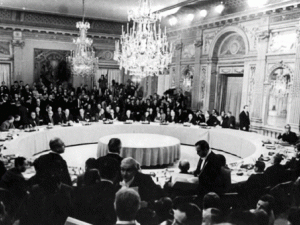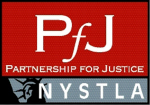 Last week we wrote about the art of the demand, discussing the various factors that shape how you make an initial demand as you head into mediation. This week we discuss what happens next and the important dynamics that come into play after you make the demand. This is where the art of negotiation becomes all important, as you have to devise your strategy for playing the back and forth process as you try and get to the best possible settlement for your client. It’s not unlike a game of ping pong, where you have to take your best shot while always anticipating your opponent’s next move.
Last week we wrote about the art of the demand, discussing the various factors that shape how you make an initial demand as you head into mediation. This week we discuss what happens next and the important dynamics that come into play after you make the demand. This is where the art of negotiation becomes all important, as you have to devise your strategy for playing the back and forth process as you try and get to the best possible settlement for your client. It’s not unlike a game of ping pong, where you have to take your best shot while always anticipating your opponent’s next move.
There are some people (and even some lawyers) who don’t like the back and forth of negotiation. They get impatient or consider it to be pointless posturing. But that’s not the case with us. To the extent that it’s important to enjoy what you do in order to be good at your job, then I guess that’s one thing that makes us effective as settlement consultants. Although defense counsel can sometimes be pig-headed and unpleasant to deal with, no matter how many negotiations we participate in over the course of a year, there is always a certain thrill we feel when it’s time to roll up our sleeves in pursuit of a new opportunity to hammer out a case settlement.
Negotiation being as much an art as a science, it’s not possible to provide hard and fast rules about how to be successful in the back and forth of every case. Each negotiation calls for finesse and intuition, as you have to be able to assess the mediator and players on the other side of the table in order to devise the optimal approach in any given situation. That being said, over the course of our careers, as we have faced such a wide array of adversaries, we’ve been able to identify a few general principles that often prove helpful in shaping the approach we end up taking.
- Never be afraid to walk away from the table. Just because you have paid good money to a mediator and invested additional time and money in preparing for mediation, you should never hesitate to break off negotiations if the defense gives an unambiguous message that they are not serious about engaging. In other words, a good negotiator is always on the look out for the sign that a case really needs to be litigated. It can happen right at the outset if the defense comes in with a ridiculously low starting position and gives no indication of flexibility. Also, if defense fails to bring the proper adjusters with the appropriate authority. Sometimes, walking out speaks louder than any other counter.
- Negotiating is like dancing – you want to be in sync with the other party. But sometimes you have to be ready to take the lead. Early on in any settlement negotiation, the parties establish a certain rhythm for the exchange of offer and counter-offer. Either you take baby steps or big strides as you go back and forth on the march to the middle. But it’s also important that you be prepared to take the lead if and when the right moment presents itself. A series of small steps can lead to an impasse and then it may be time to consider a bolder move. Remember, as with dancing, timing is everything. In the words of Don Philbin, a well-regarded mediator – “The right number at the wrong time is the wrong number.”
- Tune in to the nuance and role of every party at the table. The back and forth involved in settling a personal injury case is almost always more complicated than a two party negotiation between plaintiff and defendant. Usually, along with defense counsel, there will be multiple insurance adjustors involved, for insurance carriers with different levels of exposure. There’s also the mediator to consider. Everyone plays a different role and has a different stake in the proceedings which will very much shape how the negotiation progresses. This can be true on the plaintiff’s side of the table as well. As settlement consultants many of our attorney clients find it useful to use us for a distinct role in the negotiation. More often than not, we find ourselves putting a target on our back and playing the role of the heavy, which can be useful in order for us to be able to drive a harder bargain while also enabling plaintiff’s counsel to preserve a decent working relationship with opposing counsel.
- Don’t be afraid to trust the mediator. A professional mediator is being paid good money to get the job done and wants to see the case settled. So as a general matter we approach a mediation prepared to put our trust in the mediator. Of course, trust comes much easier when we have prior working experience with the mediator, so he or she is a known commodity with a proven track record. And of course, you never step into the same stream twice so, even with a proven track record, you have to reassess each case on its own merits. But assuming trust is established then it can be prove very useful to open your kimono wide with the mediator. The more the mediator understands where you need to be in order to settle a case, the more likely it is that a settlement can be reached. We do agree that sometimes you need to give the mediator a target zone that leaves you room when he or she tries to get you to come in lower so you reach your true winning number.





